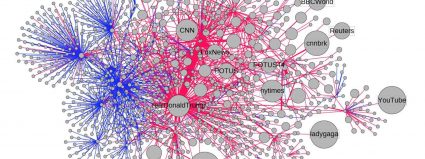Jacob Wohl and Jack Burkman are wannabe conspiracy theorists in search of click-bait.
Serial Hoaxers Jacob Wohl and Jack Burkman Swear They’ll Solve Epstein’s Death
by Will Sommer
The Daily Beast
August 12, 2019
The men behind smears of Mueller and Buttigieg offer $100,000 for info about the wealthy sex offender’s demise in jail. They don’t exactly have an inspiring track record.

Jeffrey Epstein’s apparent suicide Saturday morning in a Manhattan jail cell has spawned conspiracy theories he was murdered and sent feds scrambling to figure out how the wealthy sex offender could have died in their custody.
Now two attention-hungry men whose collaborations tend to fail spectacularly say they want to crack the case by offering a $100,000 reward for information.
Epstein’s body was discovered around 6:30 a.m. on Saturday at the Metropolitan Correctional Center in Manhattan, where he was being held while facing federal sex-trafficking charges. While no official cause of death ruling has been made, the New York City medical examiner has said she is confident Epstein killed himself. Meanwhile, the Justice Department is investigating “serious irregularities” at MCC, such as the reported failure of guards to check on Epstein every 30 minutes. (Epstein had been taken off of suicide watch days before his death.)
On Monday, lobbyist Jack Burkman and conservative operative Jacob Wohl—the hapless serial hoaxers behind several earlier failed schemes—announced that they were going to “enter the fray” and investigate Epstein’s death. Continue reading “Anal Ventriloquism Strikes Again”

 Aside from their role in amplifying the reach of misinformation, bots also play a critical role in getting it off the ground in the first place. According to the study, bots were likely to amplify false tweets right after they were posted, before they went viral. Then users shared them because it looked like a lot of people already had.
Aside from their role in amplifying the reach of misinformation, bots also play a critical role in getting it off the ground in the first place. According to the study, bots were likely to amplify false tweets right after they were posted, before they went viral. Then users shared them because it looked like a lot of people already had.


